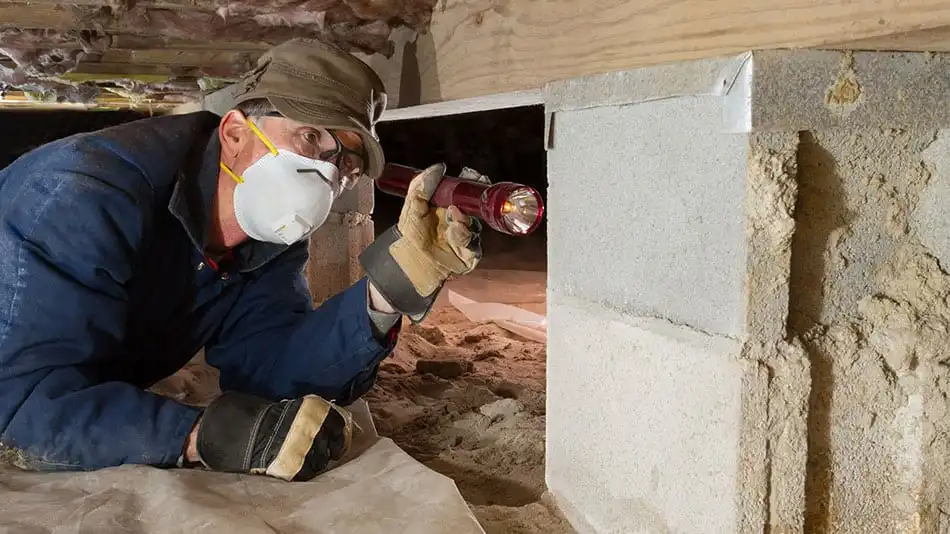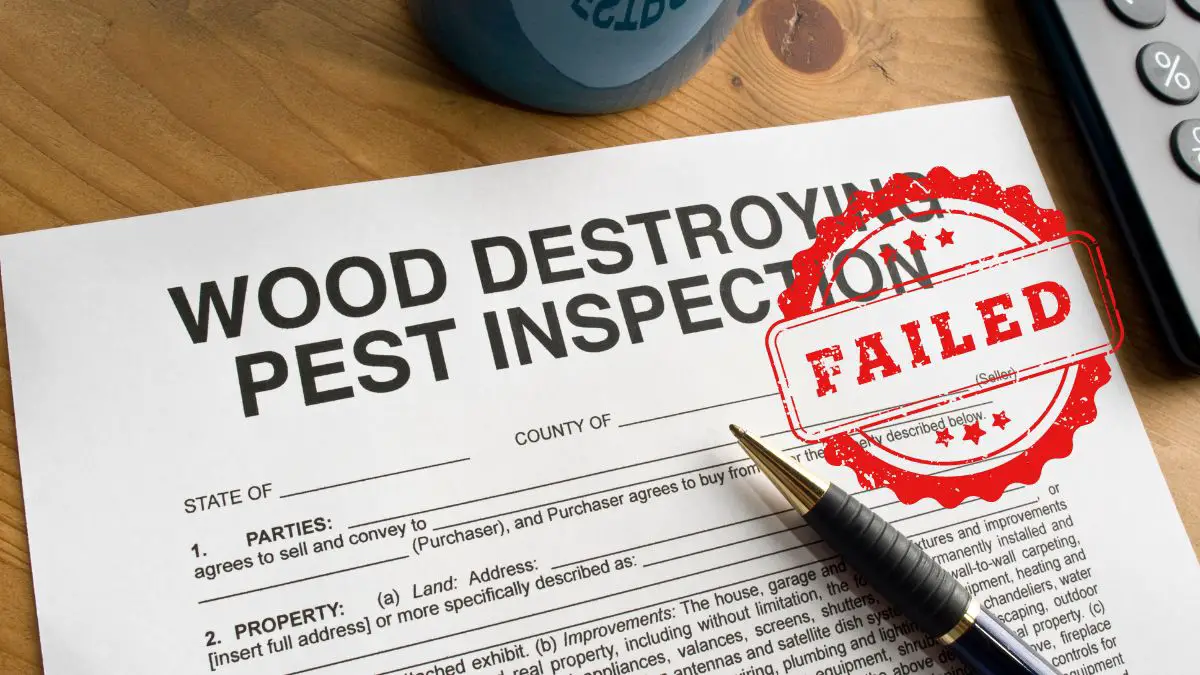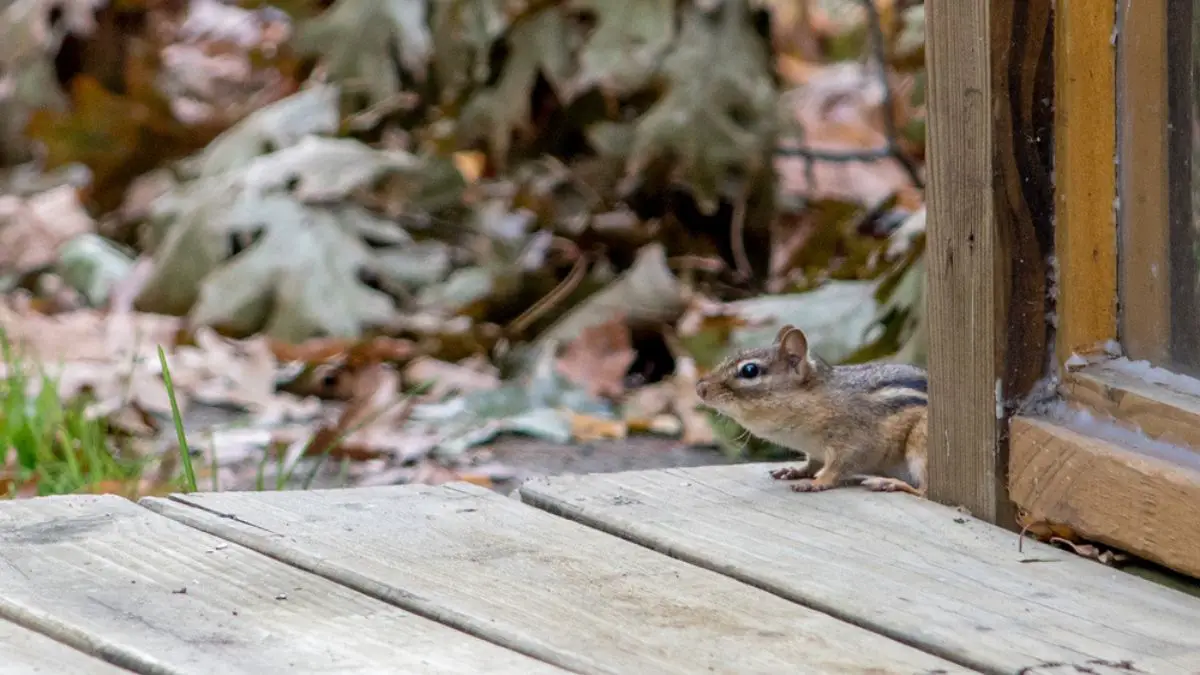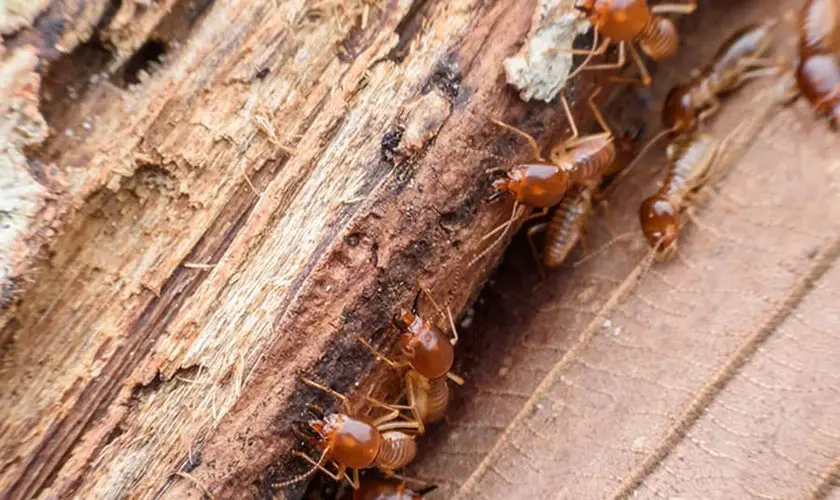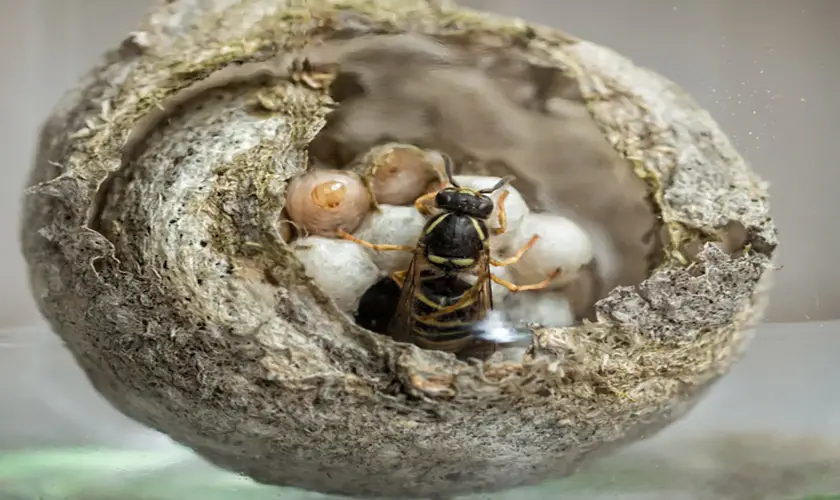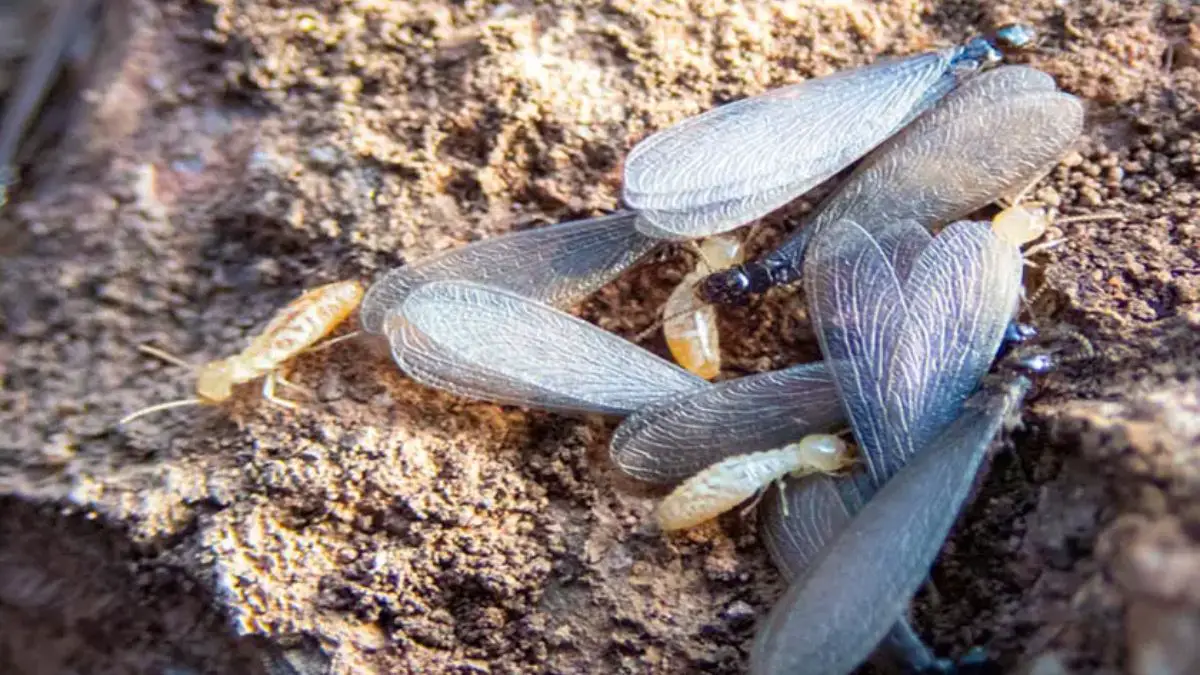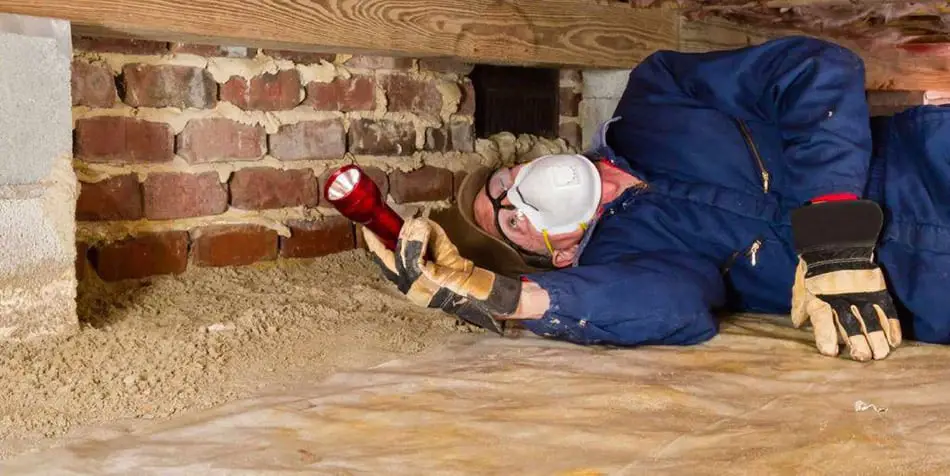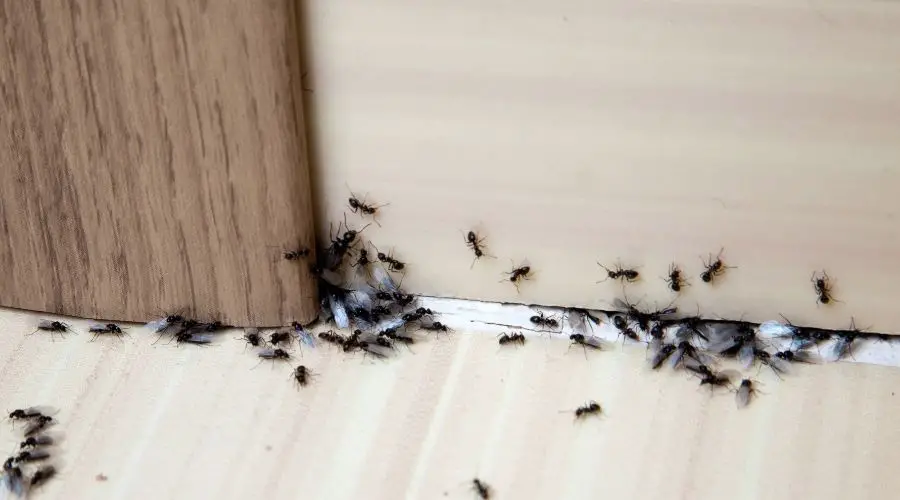
We’ve all spotted a line of ants marching through our homes at one point or another. Our first instinct would be to grab our ant spray and take care of it for many of us. However, what if that made things worse? When it comes down to ants and how they operate, you need to be informed about correctly taking care of your problem. This article will look at products that professionals use to kill ants.
To permanently eradicate ants, a combination of products will need to be used depending on the type of ant. These professional products will include non-repellent ant sprays, which poison entire ant colonies, and certain sprays and dust treatments.
Unfortunately, ants aren’t a problem that will go away independently. Quite the opposite, actually: they’ll keep coming back. Unless you deal with them properly, that is. You don’t need to hire a professional to kill ants using the products professionals use.
While licensed professionals can only use some chemicals, there are many products you can use at your home to get rid of different types of ants successfully. This article will discuss why ants are in your home, the different types of ants, and how to deal with them – once and for all!
Get FREE quotes from licensed pest control technicians in your area today. Whether you need spraying for ants, roaches, spiders, ticks, mosquitos, or bed bugs, We Can Help! All technicians are screened, licensed, and insured.
Why Are There Ants In My Home?
Are you enjoying your breakfast or sip of coffee only to find an ant made its way to have a meal? Well, that is gross, and while some might say, “it’s just a little more protein,” we say that it’s something that shouldn’t be interrupting your breakfast.
Before we get into the methods professionals use to kill ants, we must understand why these minor nuisances have found their way into your home. Understanding how ants operate will better equip you to deal with the issue permanently. These are the top reasons ants are coming into your home!
Reason One: You’re Feeding Them
No one likes to think of themselves as having poor hygiene standards but slipping up once or twice could result in ants finding their way into your house. Ants require a food source, which your kitchen could provide. We’re not even talking about leaving whole plates of food out!
A few crumbs and greasy countertops are enough to supply a colony of ants with another food source. If you’re feeding them, they’ll keep coming back!
Reason Two: They’re Looking For Shelter
Luckily for ants, they’re small enough to squeeze through many cracks and crevices. Unluckily, they can typically get into our homes if they want to. Another reason that ants appear in your home is due to the weather. In extremely hot or cold weather, ants could seek shelter indoors. If you spot ants inside, check the weather outside!
Reason Three: They’re Coming Inside From Outside
This reason may seem obvious, but bear with us! Unless ants have developed advanced teleportation, they somehow get into your home.
There might be a different reason ants are coming into your home with harsh weather and food sources aside. While ants would typically not colonize within your home, they might have done so outside your home.
This is why it is as essential to check outside the house as it is to fit inside. It may not be food luring them in; it could simply be a crack in the doorway letting the outside colony of ants in!
Not only that, but if you have plants surrounding the perimeter of your home, ants can easily climb up those plants and get in through the windows. As a general rule of thumb, keep plants half the distance of their mature spread and ensure they are always trimmed down.
Reason Four: It’s Not You, It’s Your Neighbor
Whether you live in a freestanding house or an apartment complex, the sight of ants may not be on you. If your neighbor has an ant problem they’re not dealing with adequately (or at all), it could become your problem. If too many ants are concentrated in one area, some will leave in search of greener pastures… or your kitchen.
Reason Five: You’ve Got Carpenter Ants
Not all ants you spot inside your home may be looking for your sugar bowl, but some may be looking for some wood to feast on. Carpenter ants often attract rotting or structurally weakened wooden structures in homes.
These ants can find crafty ways inside your home, from cracks in a door or window to gaps in your home’s foundation. You must identify the type of ants in your home to properly deal with the infestation in a manner that will solve your problem.
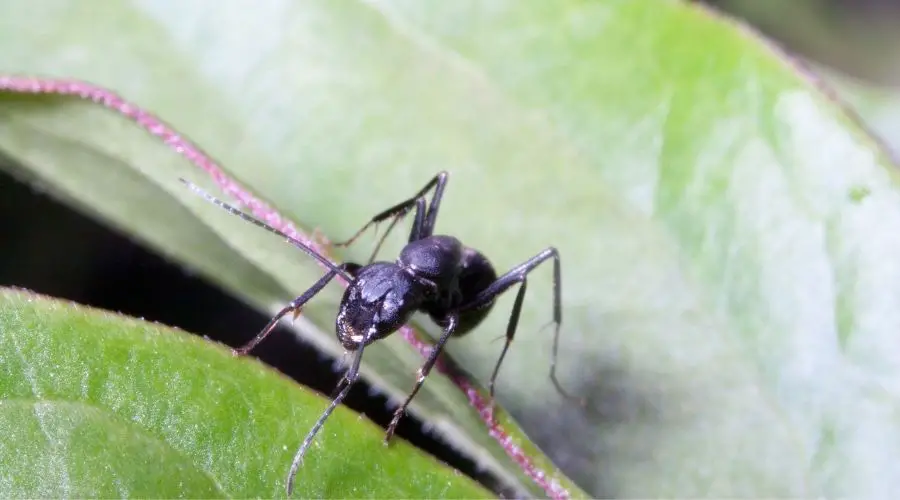
What Type of Ants Are In My Home?
It’s easy to think an ant is an ant. However, knowing which type of ant has taken up residence in your home is crucial in solving your ant problem with these tiny insects. Like there are different strokes for different folks, different types of ants appear for other reasons. Some are even dealt with differently! These are the various types of ants to look out for in your home.
1. Sugar Ants
The most common type of ant you’ll encounter, these pesky ants, are also known as odorous house ants due to their smell when they die. These ants will feed on anything from your treats to another insect you killed!
Whether they’re there for food or shelter, you want to deal with them before they contaminate your groceries (or worse: become too used to the good life and colonize inside your home).
2. Pavement Ants
Another one of the most common ants you’ll encounter, these ants can set up shop in places far worse than the sidewalk like your home. These ants are easily confused with odorous house ants; however, these ants leave specific evidence.
Whether you spot them on the sidewalk or next to your home’s foundation, these ants typically leave piles of dirt or sand from where they have burrowed. These ants will find a way to your kitchen from the pavement if you’re not careful.
3. Argentine Ants
This type of ant is arguably the most invasive species of ant. These colonies have multiple queens and can establish further nests near their original ones, though they sometimes function together, making them more of an issue. That is why it’s essential to identify them and ensure you completely eradicate your problem.
Once found primarily in Argentina, these ants are not invading homes worldwide. Outside, these ants can be found near your trash or beneath rocks. Inside your home, these ants will be located close to a source of moisture.
4. Rover Ants
Rover ants are notoriously short and can find a way into your home through small cracks. These ants will often enter your house looking for shelter from harsh weather conditions, particularly heat. However, they won’t say no to a sweet treat from your pantry.
5. Crazy Ants
These ants can be found beneath – or even inside – objects (already living up to their name). These ants are red and brown and often nest in areas near moisture, especially in small cracks. These ants won’t say no to a treat, and you’ll likely find them inside your kitchen.
6. Ghost Ants
No, these are not the spirits of all the ants you’ve killed! This ant variant is known for its lighter coloring, making them harder to spot. They often enter alongside the patio and foundation walls.
These ants can set up nests inside your home. You will often spot a trail of them leading to or from a water source due to the needs of these ants. You will likely also find them rummaging for food in your kitchen!
7. Carpenter Ants
As mentioned above, these ants love wood! Especially wood that has weakened due to exposure to moisture that has caused it to start rotting. Some of the largest you’ll find these ants won’t typically establish colonies within homes. Unfortunately, these types of ants are typically a sign of trouble.
If these ants are being attracted to your home due to rotting wood in the structure of your home, they could be making the issues worse. For this type of ant, you’ll want to use a professional!

Dealing With Ants The Professional Way
It’s about what the professionals use to kill ants and how they do it. When eradicating an ant infestation in or around your home, you want to ensure the problem is fully dealt with.
The last thing anyone wants is to spend energy on killing ants, only for them to return a week later. This is how the professionals kill ants – and what they use to do it.
Regarding the chemicals that professional exterminators use to kill ants, the most common chemicals used are pyrethroids and pyrethrin. Unfortunately, only licensed professionals are allowed to use these chemicals. This does not mean you cannot prevent ants at home!
Some of the other chemicals used to deal with ants include the following;
- Piperonyl Butoxide
- Hydramethylnon
- Methoprene
- Pyriproxyfen
- Neonicotinoids
- Avermectin
- Fipronil
- Fenoxycarbs
- Indoxacarbs
- Metaflumizone
- Carbamates
- Organophosphates.
Chances are, you didn’t read any of those names. They might as well be Greek! We are not to suggest you try and locate all of these chemicals to take care of your ant problem.
Even if you found them, you wouldn’t know the correct ratios to use in dealing with your ant infestation. The recommended products will use these chemicals to help you get the upper hand in your war against the ants.
The Best Products to Kill Ants, By Type of Ant
1. Odorous House Ants
For outside, you’ll want to use a product like BASF Insecticide, which ants can’t detect even though it’s giving them a lethal dose of insecticide! This insecticide is fantastic for use outside to deter ants from entering your home.
If these ants are already in your home, you’ll want to use a product like Phantom’s Aerosol Insecticide. This product works by targeting by way of ingestion and contact. This product is excellent to use in areas like cracks where these ants can colonize and hide in your home.
2. Pavement Ants
While the Fuse Insecticide mentioned above will also help eradicate pavement ants, another product can supplement this. There is plenty of protein or sugar-based ant traps available on the market. Using this as an additional method outside will help kill the ants.
Inside your home, the best way to deal with these ants is liquid ant bait stations, which can be placed around your home where necessary. These traps lure ants to the bait, which they’ll share amongst the colony, killing them all, including the queens.
3. Argentine Ants, Rover Ants, and Ghost Ants
For these types of ants, baiting is the most proven method of successfully getting rid of them. You’ll want to use the same kind of baits for pavement ants.
You can use sprays to supplement these areas, but you should be cautious where you spray insecticides. Remember, do not spray bait stations as you want the ants to collect the bait and return it to their colonies.
4. Crazy Ants
Lucky for those battling crazy ants, the solutions aren’t too crazy. These ants live in colonies that are larger than your typical ant colonies. For this reason, you want to ensure you kill them thoroughly so they don’t come back to haunt you. To completely eradicate these ants, you’ll want to target them indoors and outdoors.
Your best line of defense against these ants is a non-repellent ant spray. These sprays will target the colonies by poisoning ants and letting them infect one another. For this, you can use a product like Phantom’s Aerosol Insecticide. You can supplement this method with dust treatments for ants.
You leave a waterproof residue by dusting that will protect against these ants now and in a few weeks. This will help ensure that the crazy ants don’t return – not even they’ll be that crazy when you cover your tracks with a dust treatment.
5. Carpenter Ants
You’ll likely want a professional to evaluate the structural integrity of any wooden frameworks these pesky ants may have targeted in your home. However, some professional products can be used to combat carpenter ants.
You’ll want to use non-repellent ant sprays, which the carpenter ants can’t detect. In addition, you will want to invest in ant baits designed for carpenter ants. Carpenter ants are more extensive than others discussed here, so the ant bait needs to accommodate this. To deal with carpenter ants, you’ll want to use a product like Advance 375A Select Ant Bait or Maxforce Fleet Ant Bait.
Conclusion
Ants are invaders in our homes; to effectively deal with them, we need to know how they operate. Ants live in colonies, which means that spraying rogue ants in your home with a general ant spray will not solve your problem.
You’ll constantly see them returning, meaning you’ve wasted time trying to eliminate an ongoing problem. You want to eradicate the entire colony of ants, which will save you time and energy down the line.
Whether ants are seeking shelter from extreme weather conditions or you’ve been inadvertently leaving food out for them, there are surefire ways to deal with these pests.
When dealt with correctly, your life will be free of ants. Depending on the type of ant that’s invading your space, you’ll use a combination of bait traps, non-repellent sprays, and dust treatments.
Get FREE quotes from licensed pest control technicians in your area today. Whether you need spraying for ants, roaches, spiders, ticks, mosquitos, or bed bugs, We Can Help! All technicians are screened, licensed, and insured.


